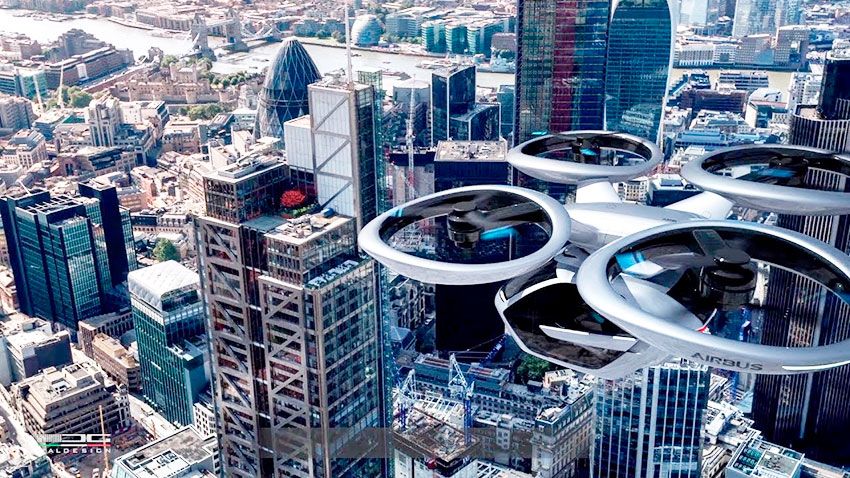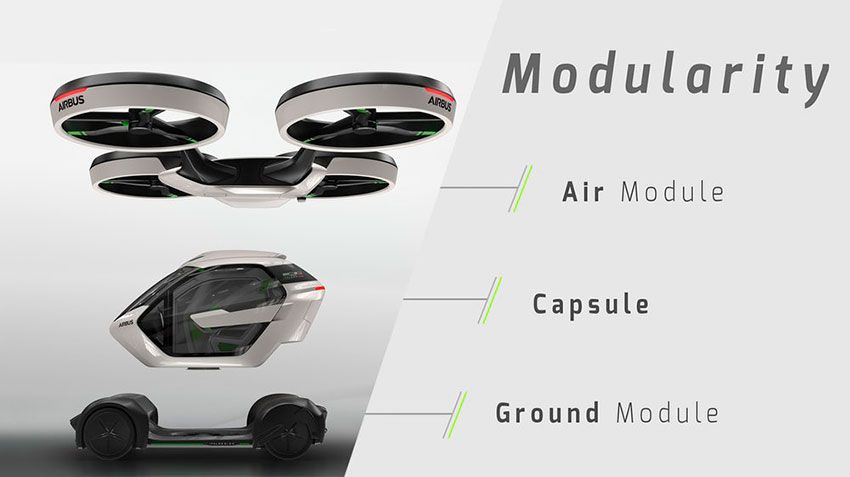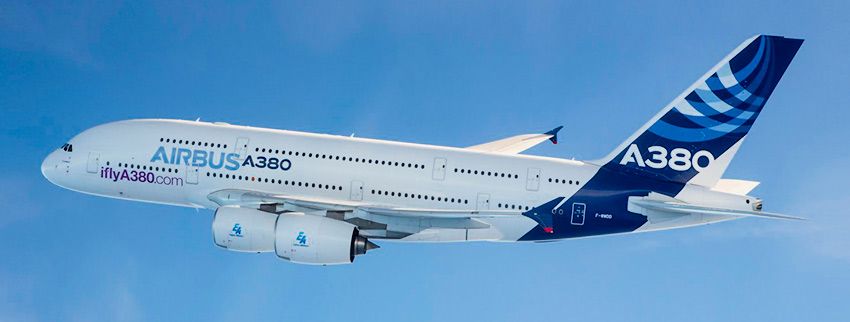Airbus is preparing public opinion for Urban Air Mobility

14 February 2019
The majority of respondents Airbus citizens ready to fly through the air, but the A-380 seems to have fly away
The website of the European aerospace company Airbus Group has published the study "Urban air mobility: towards social recognition".
The essence of this research is to understand how city dwellers to see the sky above their heads is filled with planes, bespilotnikom? Well, just like in the cult sci-Fi action movie by Luc Besson "the Fifth element". The most common answer was ready: Yes (that's what is needed of a film such as "the Fifth element").

A century ago nobody could imagine so many planes in the sky at any moment of time here and a couple of commercial aircraft disappearing behind the clouds and the helicopters flying over the high skyscrapers of your city , maybe even a drone, shooting the scenery in your area (at least, in Moscow over the Northern part of the ring road on a fine summer day the air traffic is already quite intensive, it is almost possible to speak of the existence of a kind of "air highway" – ed.).
In any case, today our skies are busy as ever: the current air traffic has quadrupled over the last 30 years and expected to double in the next 15 years. So, drastic changes appeared again on the horizon. Recent developments in battery capacity, autonomy and avionics, making possible the emergence of new types of aircrafts. These vehicles can fly higher and lower than ever before and offer new opportunities, from drones to deliver packages to service air taxi.

The sky of the future, based on the decisions Urban Air Mobility (UAM)
However, it was unclear how much people are willing to see above their heads the sky, filled with a huge number of air vehicles of various shapes and sizes?A recent public opinion poll, commissioned by the UAM, gave a clear answer to this question. A division of Airbus Mobility Unit (Airbus UTM) conducted a study, which was attended by 1540 people from such cities as Los Angeles, Mexico city, Switzerland and New Zealand, to determine their perception of safety, noise, social inequity, pollution and visual privacy in relation to the deployment of the UAM. Such a deployment component, known as the unmanned traffic management (UTM), is crucial for the conversion of UAM in reality, since it regulates the process of finding new aircrafts (air taxis, unmanned aerial vehicles, etc., etc.) in the air, providing safe movement and interaction in the sky of the future.
According to the study, almost every second Respondent in favour of the deployment of the UAM. In fact, 44% of respondents indicated that they support or "strongly support" the initiative.
The survey also found that 41% of participants believe these new aircraft are safe or even "very safe". In addition, the factor of security is the main problem for 55% of the participants in the implementation of UAM in their cities and countries, followed by the issue of noise pollution (49%) and volume (48%) generated by aircraft.
"Community residents should be trained UAM, to facilitate public recognition", – said the head of Airbus UTM management airspace Isabel Del Pozo De Poza: "From our point of view, the results of the study are very positive and show a growing support for the society."
The study also analyzed the perception of the UAM different demographic groups of the population, localized according to age groups and geographical areas in which, in the future, most likely, will develop the infrastructure. In particular, respondents living in Mexico city (67%) and Los Angeles (46%) indicated that they are willing and very likely will in the future use the UAM. Also praised the Swiss (32%) and new Zealanders (27%). Accordingly, 27% of new Zealanders, 24% of the Swiss, 19% of Los Angelesnew and 16% of the population of Mexico, spoke about UAM neutral.
In addition, a group of young people aged 25-34 years showed the most positive initial reaction (55% of positive responses) compared with the age group 75-84 years (only 15% responded positively) – however, it is not surprising, because the older generation are accustomed to thinking of themselves air travel as a luxury, and so is a notable event in his personal life, and "9-1-1 syndrome" also influenced their perception is not the best way – ed.
Head of service deployment Airbus UTM Jessie Mooberry said, "Our goal is to draw public attention to the creation of an ecosystem that will better prepare the city and urban residents to Autonomous and electric air transport facilities so that they reflect their wishes, hopes and even fears."
In the course of the study, a team of Airbus UTM thoroughly reviewed academic literature and conducted expert interviews with city officials, manufacturers of aircraft, scientists and policy makers. In future studies Airbus UTM intends to continue to work with communities around the world to explore the potential of new technologies "General flying".
PS Airbus also said that in 2021 terminates the production of the very large airliner in the world – wide-body two-decked giant A-380up to 853 passengers in one-class configuration. The reason – reorientation of the main customer giant, Emirates airlines in a more compact and economical aircraft – the A330-900 and A350-900. Because of this, delivery of A-380 will be discontinued in three years, and from 3 to 5 thousand employees of the Airbus Group will go behind the gates of the enterprises of the concern.

.
|
|
|
Element was not found.








